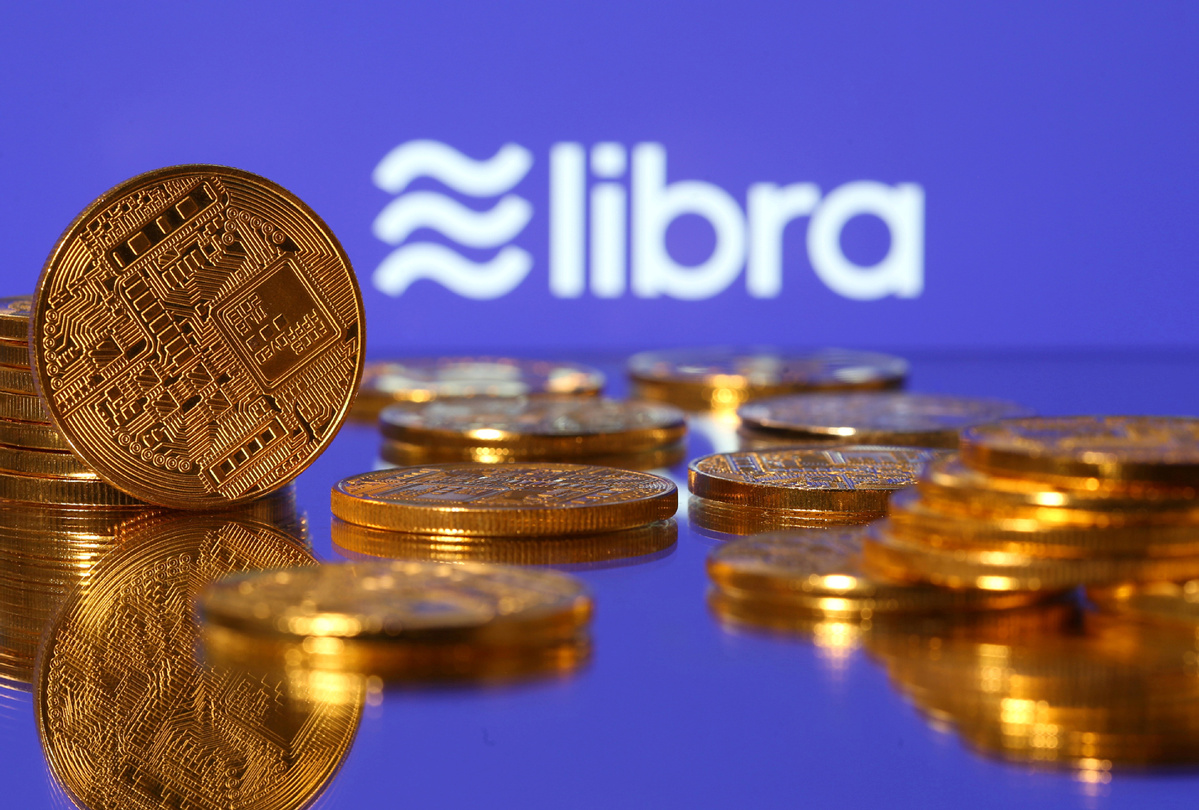User base gives Facebook currency an edge
By Barry He | China Daily | Updated: 2019-07-02 08:59

Not since the bitcoin boom of late 2017 has there been much noteworthy cryptocurrency news to interest the mainstream, other than young tech-savvy investors looking for the next big boom. However, on June 18, Facebook, the social media giant, announced the launch of its new currency, Libra.
Thousands of years ago, the libra was a Roman unit of weight equal to 329 grams. The 21st century Libra weighs a lot less than its Roman predecessor, but is poised to possibly liberate millions of people around the world through decentralized blockchain technology. A blockchain is a growing list of records, called blocks, that are linked using cryptography.
The concept of using cryptocurrencies is nothing new, and bitcoin ATMs have been available for nearly a decade in some countries. However, Facebook has a unique position to make Libra a real force in this increasingly cashless world. There are around 2.4 billion Facebook users in the world, giving it the potential to dwarf the global population using the US dollar.
Trust, however, will play a big part in this. Facebook has already said the financial regulation of the new currency will be handed to independent NGOs, which may be for the best, considering the data privacy issues that the social media giant has faced in recent years.
Public concern regarding such data privacy could be an obstacle, although to what extent remains to be seen. If people cannot trust Facebook with their date of birth and middle name, how about their life savings?
However, the concept is an exciting one. Being able to buy and sell Libra currency would be a piece of cake over the company's widely used Facebook Messenger app, and also via WhatsApp, another messaging service owned by Facebook that has 1.5 billion users. In India alone, WhatsApp has over 200 million users. In India and the United States, WhatsApp is catching up with WeChat in China and experimenting with app money transfers.
Libra certainly packs the horsepower, with Facebook claiming the system can handle 1,000 transactions a second, compared with just seven a second for bitcoin. Other cryptocurrencies such as Monero boast more transactions per second, according to their developers, but lack the global infrastructure that Facebook enjoys.
The launch of Libra in 2020 may give banks a cause for concern, too. Revenue from crossborder payments, among other forms of revenue for banks, may take a hit due to Facebook's ambition for such transactions to be offered for free in the future. In addition, bank balances might be lower in time as more people switch over to the faster, more efficient system. Facebook has the potential to become a competitive bank in itself.
For now, Facebook will offer its wallet service, Calibra, to consumers for holding digital currency. However, the potential for this to grow into something larger is there.
One of Facebook's main aims through Libra is to keep its large social media herd, and to tie it into using Facebook products through the use of the new currency. With increasing competition from social media giants in the East, this could be a good move to secure its future, so long as Facebook manages to reassure the public over privacy concerns.
By doing so, however, big changes could come in how we use decentralized currencies outside of a centralized banking system. The dream of doing this started exactly a decade ago with version one of bitcoin, and might now become a reality as Facebook gives the technology a push in the right, albeit unpredictable, direction.
The author is a London-based columnist. The views do not necessarily reflect those of China Daily.
























